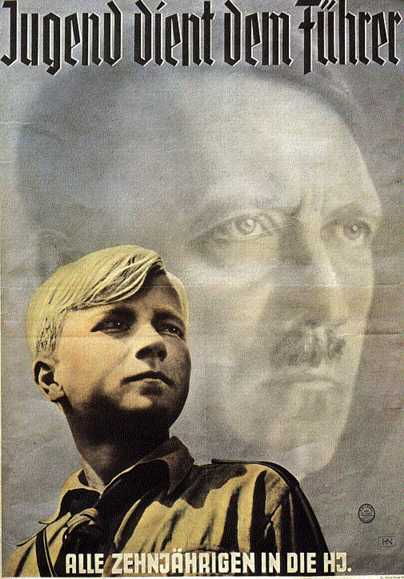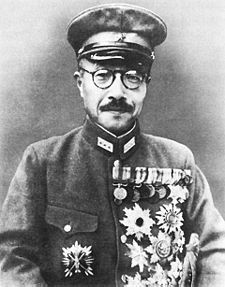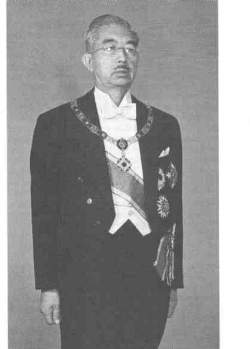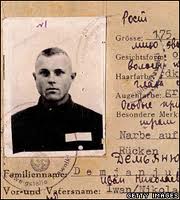
December 1
1743 Birth: Martin Klaproth Discoverer of Uranium.
1913 Ford's assembly line starts rolling: On this day in 1913, Henry Ford installs the first moving assembly line for the mass production of an entire automobile. His innovation reduced the time it took to build a car from more than 12 hours to two hours and 30 minutes. [For further information, click here]
1916 World War I: Greece: King Constantine refuses to surrender to the Allies.
1918 Various: The province of Transylvania Weimar: An American army of occupation enters Germany.
New state declared in the Balkans:
Three weeks after the armistice, and on the same day that Allied troops cross into Germany for the first time, a new state is proclaimed in Belgrade, Serbia.
As the great Austrian and German empires were brought low in defeat, the new "Kingdom of the Serbs, Croats, and Slovenes" sprung to life, bolstered by the League of Nations promised support for Europe s minority populations. Included in the new state were 500,000 Hungarians and an equal number of Germans, as well as tens of thousands of Romanians, Albanians, Bulgarians and Italians.
Crown Prince Alexander, the son of the ailing king of Serbia who had commanded Serbian armies in the Great War, was named regent of the provisional government of the new state. In 1921, with the support of the Serbian representatives in the government and against the opposition of Croatian federalists, who favored a broader distribution of power, a new constitution was put into effect that created a strong central government; Alexander became king after his father died that same year.
Tensions continued to mount with the Serbian-dominated government s denial of autonomy to different ethnic groups, notably the Croats and Slovenes, and in the summer of 1928, in response to the fatal shooting of the Croatian leader Stjepan RadiÆ and two colleagues by a Montenegrin deputy in the national parliament, the Croatians withdrew from parliament and organized a separatist regime based in Zagreb. In January 1929, with the nation on the brink of civil war, Alexander suspended the constitution, dissolved the parliament and all political parties, and took dictatorial control of the country. As part of his effort to impose national unity on the country s warring ethnic groups, he renamed the country Yugoslavia.
Conflict continued to simmer in the Balkans, however, and in 1934, Alexander was assassinated by extreme right-wing Croatian nationalists during a state visit to Marseilles, France. His son, Peter, managed to maintain unity until 1941, when the German army invaded Serbia and Croatia declared its independence. (History.com)
Decree of the Montenegrin Skupshtina:
Taking into consideration the historical tendencies as well as political and economic interests of Montenegro, the Great Skupshtina, elected by the people of Montenegro and assembled at Podgoritza, has decided: 1. To depose the King, Nicholas Petrovich Niegush; 2. To effect the union of Montenegro with Serbia under the Karageorgevich dynasty and its entrance into the common fatherland of Serbians, Croatians, and Slovenes; 3. To elect a national committee specifically charged with the conduct of the affairs of Montenegro united with Serbia, and 4. To communicate this decision to former King Nicholas and to the Government of the Kingdom of Serbia, as well as to the Governments of the Allied and neutral powers.
1922 Poland: Chief marshal Jozef Pilsudski, resigns.
1925 Various:
The Locarno Treaties are signed: Weimar: After a seven-year occupation, 7,000 British troops evacuate Cologne, Germany.
1933 Nazi Germany: The German cabinet passes a law 'to ensure the unity of Party and State.' Hitler declares that the German state and the Nazi Party are one by law.
1934 USSR: The Great Terror unfolds in USSR with the murder of Sergei Mironovich Kirov. His death is probably ordered by Stalin, who uses the murder as the pretext for arresting nearly all the major party figures as saboteurs within a year. The Communist Party and military will be decimated by purges and show trials. Some 720,000 people are executed between 1934-1938, but the toll is probably higher by many orders of magnitude.
1936 The The Hitler Youth (Hitlerjugend) becomes an official agency of the Reich.
1937 Various: Spain: Dec 1-17 A French diplomatic mission visits Poland, Romania, Yugoslavia and Czechoslovakia in an attempt to strengthen the French alliance system against Germany.
1938 Great Britain initiates a program of accelerated rearmament and military expansion.
1939 Holocaust: Deportation to Poland:
Trainloads of deportees begin rolling into the newly created Government General in eastern Poland. The administration which already has 1.4 million Jews under its jurisdiction is overwhelmed by the numbers--an average of more than 3,000 per day. Note: These mass movements were designed to make room in the annexed area of Poland for ethnic Germans who were moving westward under special agreement with the Russians, from the Baltic States and other regions now under Soviet control.
1941 Various: World War II: War at Sea: With the outbreak of World War II in September 1939, Devonshire was based at Scapa Flow. She participated in the Norway Campaign during the spring of 1940, notably evacuating Norwegian King Haakon VII and his party in June, shortly before the Germans completed their conquest of his embattled nation. Devonshire continued her service in northern waters until October 1941, when she was shifted to the south Atlantic and Indian Ocean. In November 1941 she sank the famed German raider Atlantis and in May 1942 took part in the Madagascar operation. Returning to colder parts of the Atlantic, in 1944 she escorted British aircraft carriers during attacks on the German battleship Tirpitz . . . .
Countdown to Infamy: Various:
Tojo (Japan) rejects US proposals for a Pacific settlement as 'fantastic and unrealistic'.
1. The date set-- (November 25, 1941) --has come and gone, and the situation continues to be increasingly critical. However, to prevent the United States from becoming unduly suspicious we have been advising the press and others that though there are some wide differences between Japan and the United States, the negotiations are continuing. (The above is only for your information.) . . . . 3. There are reports here that the President's sudden return to the capital is an effect of Premier Tojo's statement. We have an idea that the President did so because of his concern over the critical Far Eastern situation. Please make investigations into this matter.
Japanese Emperor Hirohito signs a secret declaration of war.
London to Tokyo:
It is feared that in the event of the situation becoming critical the exchange of telegrams may become impossible. I therefore submit the following points for your consideration and request instructions. 1. In view of conditions at this post, countries suitable for protecting our interests after the withdrawal of this Embassy are BRAZIL or SWITZERLAND. I suggest that the matter be discussed in TOKYO with the country concerned, so that instructions may be sent by that Government to its Ambassador (Minister) in LONDON. 2. Is there any objection to burning the consular exequaturs at present held in custody . . . . 3. The stipulations for withdrawal of the Embassy etc. staffs and of resident Japanese should be made with the British on a strictly reciprocal basis. If this could be done it would be necessary to effect the exchange at a stipulated place, each side providing a ship. An agreement would have to be drawn up regarding the dates of departure, etc. to prevent anything going amiss. (In case of GERMANY the exchange took place in HOLLAND, in ITALY's case it was LISBON. If hostages are taken there is the danger that our nationals will not be able to leave the country.)
Washington to Tokyo:
Indications are that the United States desires to continue the negotiations even if it is necessary to go beyond their stands on the so-called basic principles. However, if we keep quibbling on the critical points and continue to get stuck in the middle as we have in the past, it is impossible to expect any further developments. If it is impossible from the broad political viewpoint, to conduct a leaders' meeting at this time, would it not be possible to arrange a conference between persons in whom the leaders have complete confidence, (for example, Vice President Wallace or Hopkins from the United States and the former Premier Konoye, who is on friendly terms with the President, or Advisor to the Imperial Privy Council Ishii). The meeting could be arranged for some midway point, such as Honolulu. High army and navy officers should accompany these representatives. Have them make one final effort to reach some agreement, using as the basis of their discussions the latest proposals submitted by each. We feel that this last effort may facilitate the final decision as to war or peace. We realize of course that an attempt to have President Roosevelt and former Premier Konoye meet (could) fail. Bearing in mind the reaction to that in our nation, it may be to our interest to first ascertain the US attitude regarding the possibility. Moreover, since we have no guarantee either of success or failure of our objectives even if the meeting is held, careful consideration should first be given this matter. We feel, however, that to surmount the crisis with which we are face to face, it is not wasting our efforts to pursue every path open to us. It is our opinion that it would be most effective to feel out and ascertain the US attitude regarding this matter, in the name of the Japanese Government. However, if this procedure does not seem practical to you in view of some internal conditions, then how would it be if I were to bring up the subject as purely of my own origin and in that manner feel out their attitude. Then, if they seem receptive to it the government could make the official proposal. Please advise me of your opinions on this matter.
Tokyo to Washington: When you are faced with the necessity of destroying codes, get in touch with the Naval Attaches office there and make use of the chemicals they have on hand for this purpose. The Attache should have been advised by the Navy Ministry regarding this.
Tokyo to London:
Please discontinue the use of your code machine and dispose of it immediately. In regard to the disposition of the machine please be very careful to carry out the instructions you have received regarding this. Pay particular attention to taking apart and breaking up the important parts of the machine. As soon as you receive this telegram wire the one word SETUJU in plain language and as soon as you have carried out the instructions wire the one word HASSO in plain language. Also at this time you will of course burn the machine code and YU GO No. 26 of my telegram. (The rules for use of the machine between the head office and the Ambassador resident in England.)
Tokyo to Hsinking:
In the event that Manchuria participates in the war . . . . in view of various circumstances it is our policy to cause Manchuria to participate in the war in which event Manchuria will take the same steps toward England and America that this country will take in case war breaks out. A summary follows: 1. American and British consular officials and offices will not be recognized as having special rights. Their business will be stopped (the sending of code telegrams and the use of short wave radio will be forbidden). However it is desired that the treatment accorded them after the suspension of business be comparable to that which Japan accords to consular officials of enemy countries resident in Japan. 2. The treatment accorded to British and American public property, private property, and to the citizens themselves shall be comparable to that accorded by Japan. 3. British and American requests to third powers to look after their consular offices and interests will not be recognized. However the legal administrative steps taken by Manchoukuo shall conform to the provisions of the Japanese-Soviet neutrality pact. Great care shall be exercised not to antagonize Russia.
Malaya: Great Britain declares a state of emergency following premature reports of Japanese attacks.
1942 Various:
World War II: Gasoline rationing The Welfare State is officially envisaged in Britain with the publication of the Beveridge Report. It is hailed as a charter for social security by bringing the whole population into an insurance scheme.
1943 Holocaust: Italy: A law is passed providing for the internment of all Jews in concentration camps and for the confiscation of their property. Occasional searches for Jews take place during the following months.
1944 USA: Stettinius succeeds Hull as secretary of state: On this day in 1944, Edward R. Stettinius Jr. becomes Franklin Roosevelt's last secretary of state by filling the Cabinet spot left empty by the Cordell Hull. [For further details, Click here.]
1945 Various: Continuation of the Testimony of Erwin Lahousen.
Death: Anton Dostler:
On December 1, 1945, German General Anton Dostler was shot by the American military at Aversa, Italy, for war crimes.
Specifically, General Dostler was condemned for having ordered the summary execution of American saboteurs who had been taken behind enemy lines. Dostler was the first German general tried by an American military commission, and the first put to death for war crimes. [For further details, Click here.]
1966 West Germany: Georg Kiesinger is elected chancellor.
1973 Death: David Ben-Gurion, founding father of Israel, in Tel Aviv at 87.
1989 East Germany drops the communist monopoly from its constitution.
1990 Various: Lithuania, Estonia and Latvia 1991 Ukraine: A referendum shows voters backing independence from Russia by 9 to 1. The result confirms parliament's earlier declaration of independence.
2009 Trial Survivors of the Sobibor death camp and relatives of the Jewish prisoners killed there wept in court today as the names of some of the victims were read out in the trial of the 89-year-old, accused of being part of the Nazi murder machine.
On the second day of the trial of John Demjanjuk, accused of being accessory to the murder of 27,900 Jews at Sobibor, in Nazi-occupied eastern Poland, several co-plaintiffs sat with their heads in their hands as the names and the dates of their transport to the camp by train were listed . . . . .
Demjanjuk was wheeled into the Munich court on a hospital stretcher . . . . and lying on his side so his back was turned to the public gallery for most of the morning session, he refused to participate in the proceedings. Demjanjuk's lawyer, Ulrich Busch, said his client would exercise his right to remain silent . . . . .
A 10-page charge sheet was read out by the state prosecutor, Hans Joachim Lutz. It described how people were transported to Sobibor in trainloads and "could have been shot at at any time" during the journey. He said Demjanjuk had "mercilessly and callously" helped other guards and SS soldiers to drive people into the gas chambers "because he himself wanted their deaths, believing, too, in the racist ideology behind it." . . . . . He is believed to have been one of around 150 Soviet war prisoners recruited as camp guards at Sobibor between spring 1942 and October 1943, when 250,000 Jews were murdered. Most of the victims perished within an hour of arriving at the camp. (Guardian)
Edited by Levi Bookin (Copy editor)



Tokyo to Washington:


levi.bookin@gmail.com
FAIR USE NOTICE: This site may contain copyrighted material the use of which has not always been specifically authorized by the copyright owner. We are making such material available in our efforts to advance understanding of historical, political, human rights, economic, democracy, scientific, environmental, and social justice issues, etc. We believe this constitutes a 'fair use' of any such copyrighted material as provided for in section 107 of the US Copyright Law. In accordance with Title 17 U.S.C. Section 107, the material on this site is distributed without profit to those who have expressed a prior interest in receiving the included information for research and educational purposes. If you wish to use copyrighted material from this site for purposes of your own that go beyond 'fair use', you must obtain permission from the copyright owner.
Please note that the list-owner and the moderator are not responsible for, and do not necessarily approve of, the random ads placed on our pages by our web server. They are, unfortunately, the price one pays for a 'free' website.





